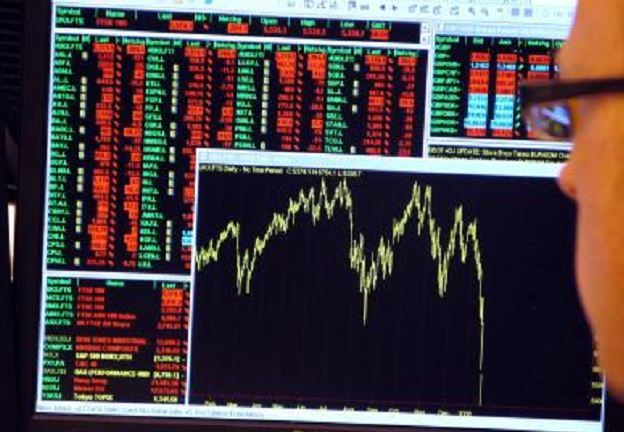
Oil erased losses as global markets adjusted to Republican Donald Trump’s election as the 45th U.S. president.
Futures were little changed in New York, reversing an earlier decline of 4.3 percent. Turbulence in financial markets calmed and a knee-jerk selloff of risky assets abated as Trump, 70, promised to try to unite America’s divided political factions after his victory over Hillary Clinton.
The result nonetheless rattled markets that had banked on a continuation of economic and trade policies under a Democrat president. Most polls had shown Clinton ahead of Trump going into the vote and websites that took bets on the victor had put her odds of winning at 80 percent or more.
Read more: Commodities in turmoil as Trump’s victory shocks investors
“The market’s first reaction to Trump’s victory is risk-off, with the liquidation of positions built up on Monday on expectations of a Clinton win,” said Giovanni Staunovo, an analyst at UBS Group AG in Zurich. “But Trump’s acceptance speech sounded bipartisan, pro-growth and diplomatic, so some of the negative fears have waned.”
West Texas Intermediate for December delivery fell 1 cent to $44.97 a barrel on the New York Mercantile Exchange at 11:14 a.m. London time, after dropping as much as $1.91 to $43.07. Total volume traded was almost four times the 100-day average.
Brent for January settlement rose 14 cents, or 0.3 percent, to $46.18 a barrel on the London-based ICE Futures Europe exchange. The contract declined 11 cents to $46.04 on Tuesday. The global benchmark traded at a 54-cent premium to WTI for January delivery.
Trump was pushed over the 270 Electoral College votes needed to become the president-elect and the Republicans also retained control of Congress. Trump has pledged to clamp down on immigration to the U.S. and renegotiate free-trade agreements with countries including Mexico.
In a special report on Nov. 7, Societe Generale SA said the election outcome wouldn’t have a profound impact on oil, while analysts at Nomura Holdings Inc. had said a Clinton victory combined with an OPEC deal could trigger sharp price rebounds.
In the longer term, the reaction in oil markets to the election result would likely take a back seat to questions over whether OPEC will be able to complete a deal to restrain output at its late-November meeting in Vienna.
“Oil prices are in for some volatility until the dust settles,” said Tushar Tarun Bansal, director at industry consultant Ivy Global Energy in Singapore. “It does add to the long-term uncertainty about the global markets.”
Oil has retreated below $45 a barrel following the Organization of Petroleum Exporting Countries’ failure to agree on output quotas for member countries on Oct. 28. The group must reach a consensus before finalizing its September deal to cut production. OPEC’s chief warned of prolonged market instability if there is no agreement to limit supply.
Other raw materials and the companies that produce them were whipsawed by Trump’s shock victory. Agricultural commodities declined while industrial metals rebounded from earlier losses and gold surged with haven assets.
In other oil market news:
Militants blew up the Forcados oil pipeline in Nigeria, Niger Delta Avengers’ spokesperson Mudoch Agbinibo wrote on Twitter. U.S crude supplies rose by 4.4 million barrels last week, the American Petroleum Institute was said to report Tuesday. Government data Wednesday is forecast to show stockpiles gained 2 million barrels. Energy companies led declines in Asia. Australian producer Santos Ltd. dropped 7.5 percent, the most since May. China Petroleum and Chemical Corp., the world’s biggest refiner known as Sinopec, slumped as much as 7.8 percent during intraday trading in Hong Kong. Trump may turn U.S. energy policy on its head, as his plans are “basically the antithesis of the current administration’s and Ms. Clinton’s planned pro-clean energy proposals,” JBC Energy said in an e-mailed report.
Recommended for you
